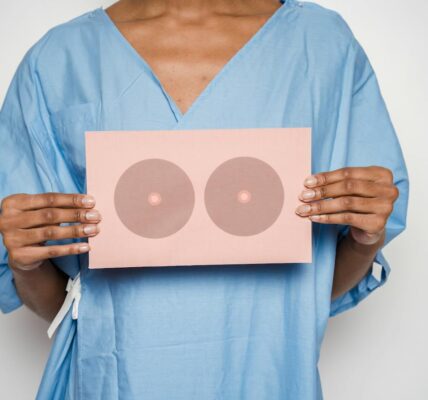Rusan Med’s thought-provoking webinar marks ‘Pain Awareness Month’ with expert insights and innovative solutions
Rusan Med, an initiative by Rusan Healthcare, committed to advancing pain management in India, recently hosted a thought-provoking webinar to commemorate ‘Pain Awareness Month’. The webinar addressed the multifaceted realm of pain with the theme ‘Pain Management – Opportunities and Challenges in India’, featuring a panel of renowned doctors in the field – Dr Republica Sridhar and Dr Hetal Shah, who shared profound insights and innovative solutions to pain alleviation. Several discussions were made on key aspects of pain management, including changing perceptions of pain and its management, innovative strategies of chronic pain management, and the pivotal role of family physicians in the primary care approach to pain.
The webinar drew attention to the ignorance of mild pain and the lack of awareness surrounding its significance. The experts stressed an underlying message strongly – ‘No matter how minor or seemingly negligible, chronic or acute, even the smallest discomforts of pain should never be underestimated.’ They also shared that psychological and emotional pain contribute heavily to physiological pain. Hence, it becomes imperative to meticulously investigate the underlying cause before starting the treatment. “Effective pain management involves understanding and treating the root cause of the pain, not just the symptoms. A holistic and tailormade approach for patients is necessary with the right drug at the right time for their specific health conditions. Monitoring the consequences post that is equally important.” said Dr. Hetal Shah, Clinical Lead, Senior Consultant – Cardiac Anesthetist & Intensivist, Narayana Multispecialty Hospital, Ahmedabad. Understanding the source of pain is imperative if it originated from a disease, co-morbid conditions, infections, or if medically induced. Healthcare practitioners were emphatically urged to exercise caution, avoiding hasty conclusions and instead thoroughly investigate simpler facts to ensure accurate diagnosis and appropriate pain management.
Most people in India seek medical attention for pain when it has already progressed to advanced or chronic stages. At this point, addressing pain often takes precedence over treating other symptoms. Compounding this issue, the doctors highlighted that chronic pain tends to be overlooked in India, with some patients incorrectly labelled as psychiatric cases or directed to palliative care by physicians due to a lack of awareness and proper management protocols.
Dr. Republica Sridhar, Pain Management expert, RMD Hospital and Care, Chennai stated, “Achieving optimum pain management still remains a challenge in India as only a small fraction, approximately 5-10% of people attain significant relief. Around 30-35% of those dealing with chronic pain, including cancer pain and the elderly population, do not receive the appropriate dosage for effective pain management. This shortfall can be attributed to a lack of awareness among patients and physicians, particularly concerning the use and availability of narcotics. There is an urgent need to sensitise the medical fraternity about using narcotics and non-opioid drugs for effective pain management techniques. Including the right dose of anti-inflammatory is crucial when required with a sensible protocol and should be tailor-made for patients, as pain threshold is different for everyone.”
Further Dr. Republica Sridhar shared that there is a prevalent myth that cancer-related pain management is only possible through narcotics in advanced stages. Medical practitioners should be aware of the availability and easy access to narcotic and psychotropic drugs as stated in NDPS act. Specialised pain management companies such as Rusan work closely with all stakeholders to ensure the availability of high-quality medicines required to manage pain for several conditions.
The discussion further explored future technologies in pain management to revolutionise quick pain relief. Dr. Hetal Shah discussed several innovations, such as nanotechnologies and its potential to deliver precise and targeted pain relief. The importance of subliminal pain management medications was also discussed, as it is not limited to medication alone but encompasses holistic approaches to treating pain, such as music therapy and relaxation therapy, to reduce the side effects of medicines. Moreover, patient-controlled analgesia via transdermal patches showcases more efficient and targeted pain relief approaches that allow patients to have more control over their pain relief, enhancing their overall healthcare experience.
Dr. Republica said, “Transdermal patches such as buprenorphine, fentanyl, and lidocaine are very beneficial especially when patients cannot tolerate medication orally or through injections, or experience issues with their liver or kidney.” “These patches offer a controlled and sustained release of medication, allowing for consistent pain management while minimising potential side effects. They play a huge role in cases where patients cannot be given high doses of medications while experiencing chronic pain and post-operative pain.” added Dr. Hetal Shah.
Educating physicians is equally important about the preventive techniques of pain management. In a patient’s journey, family physicians play a pivotal role in initiating appropriate pain management strategies, ensuring continuity of care, and advocating for holistic approaches that enhance the overall well-being of patients. Several discussions were also made on other subjects, such as Disparities in access to medications across India, the difference between neuropathy pain and nociceptive pain, non-opioid-based pain management, the criticality of monitoring renal functions when prescribing NSAIDs, and future technologies in pain management that will help in quick pain relief.
Rusan Med’s webinar on ‘Pain Management – Opportunities and Challenges in India’ shed light on the existing challenges in pain management in India, including the lack of awareness and proper protocols. However, it also offered hope through the exploration of innovative technologies, holistic approaches, and patient-centric solutions that have the potential to revolutionize pain relief.






